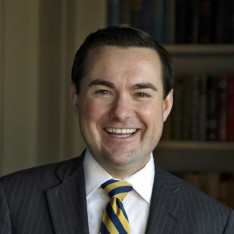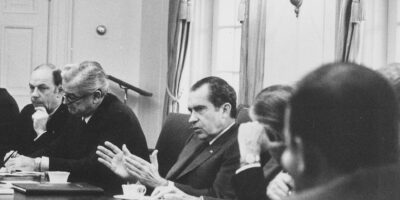The Work of AIER and Its Future

As the year winds to an end, Americans are being told to dial back all their holiday plans and stay away from friends and family. They demand: do not trust your own sense of things but rather defer to politicians and their advisors. If you don’t want to do that, you will be forcibly masked, traced, and harassed with threatening emails from sheriffs and public health officials.
It’s now a daily reality for many millions of Americans.
It’s only the most visible sign of the economic and social catastrophe we’ve seen this year. Day after day we’ve hoped for the world to come to its senses. And yet one day leads to the next, and still the mainstream media screams at us that we have no choice but to lock down. It was two weeks. Then two months. Now they tell us it will be two years.
A feeling of powerlessness has swept over the population. There is nothing we can do, we are told. We must defer, comply, obey. If you doubt any aspect of what has happened – do the benefits of these destructive policies really outweigh the costs? – you will be called all kinds of names.
It does indeed seem like madness. Viruses have always been with us, and we’ve had a sophisticated understanding of them for at least one hundred years. In previous outbreaks, we used rationality and medical therapeutics to get through them while not smashing markets and social functioning.
This year, governments around the world – even in countries like ours that pride itself for its liberties and guarantees of human rights – ignored the science and history and instead embarked on an unprecedented social and political experiment. The carnage is all around us, easily documented. We’ve spent a year issuing warnings and exposing the reality, thereby becoming a crucial voice in times when the mainstream media has failed to be truthful with the American people.
Just this weekend, we had an important guest visit our campus, one of the most notable public intellectuals of the last half-century. She came to deliver a message to us. “The fires of liberty seem to be burning out,” she told us. “AIER’s fire is still lit. You must burn hotter and brighter than ever in 2021. The whole world needs you now more than ever.”
AIER has become profoundly aware of the challenges we must face in the new year. This year has brought us new attention internationally. Millions of people who had never heard of our work before are now following us on a daily basis. Our research and editorial work has had profound influence, not enough to stop the disaster, but we’ve made it clear that despotism does face an intellectual resistance. That resistance is growing.
At the same time, we’ve faced throttling, digital blockades, censorship, and outright smears. It’s been a trial for all of us. But we’ve never backed off, never relented.
Rather than look back at this catastrophe pushed by errant policy this year (there will be plenty of time for that), we need to look forward to ways to rebuild. Perhaps 30 percent of hospitality businesses like bars and restaurants will go under. International travel and migration still aren’t open. Children have suffered nearly a year without in-person schooling and many are traumatized. The general demoralization of the population has led to a surge in overdoses and depression.
The AIER answer here is always the same: the best research and writing pointing to the light of liberty. It’s true that there have been times this year when we felt very alone in our work. But as we approach the year-end, things have changed. We are now joined by multitudes who have appreciated that we never wavered in our commitments to integrity and principle in the search for truth.
The challenges next year all come down to recommitting ourselves to these institutions that are the bulwark of peace and prosperity: trade, capital investment, individual rights, sound money, limits on government, and functioning market and social processes. There is no other way. We know this from theory and experience. Unless some institution is willing to stand up boldly for these principles, society can lose its way. AIER is perfectly positioned to continue its work in this direction.
Does it, can it, make a difference? Some powerful people want you to believe that the narrative of history is baked into the structure of time itself. Therefore, there is nothing you can do. That is the surest way to enable the triumph of error and evil.
Our founder, Edward C. Harwood, refused to acquiesce to power. From our founding in 1933 and forward, we have faced down countless threats and attempts to silence us. And why did they try? Because ideas matter. They can teach, inspire, build, and shift. Nothing is inevitable. History is what we make of it.
We are called upon again to exercise creativity and moral courage in defense of the ideals of freedom. The power of that courage is often underestimated. The road back to sanity and liberty is treacherous and twisted, with dangers and barriers at every step, but it is navigable. The battle can be won.
I welcome your support for our work. We value it. We also need it. And we need your friendship and collegiality in this coming year. Please consider a generous donation today. You might even consider joining our 1933 Club.
Happiest of holidays and a joyous New Year to you. I’m optimistic that we can make a change, and your commitment to our work further inspires all of us at AIER.










